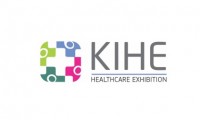-
Improving tracking of AMR bacteria in hospitals using new genomic technique
- Source: drugdu
- 330
- August 29, 2024
-
AI-Based Digital Pathology Platform Improves Lung Cancer Diagnosis
- Source: drugdu
- 253
- August 28, 2024
-
Novel Blood-Based Risk Score Based on Lipids Improves Prediction of Heart Disease
- Source: drugdu
- 311
- August 28, 2024
-
New drug trial to investigate treatment for patients with bronchiectasis
- Source: drugdu
- 355
- August 28, 2024
-
SynaptixBio awarded £2m BioMedical Catalyst grant from Innovate UK
- Source: drugdu
- 321
- August 28, 2024
-
Celltrion’s SteQeyma receives EC approval for chronic inflammatory diseases
- Source: drugdu
- 435
- August 28, 2024
-
MSD snags European approval for pulmonary arterial hypertension therapy
- Source: drugdu
- 250
- August 28, 2024
-
【EXPERT Q&A】What are the advantages of MDSAP medical device system certificate?
- Source: drugdu
- 287
- August 28, 2024
-
KIHE 2025
- Source: drugdu
- 608
- August 27, 2024
-
Roche Joins Fight Against Mpox Outbreak with High-Quality PCR Diagnostic Tests
- Source: drugdu
- 232
- August 27, 2024
your submission has already been received.
OK
Subscribe
Please enter a valid Email address!
Submit
The most relevant industry news & insight will be sent to you every two weeks.

















